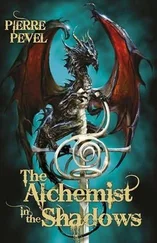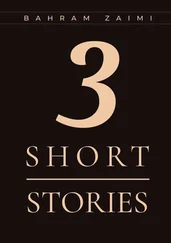Molly’s car was not in the driveway, which meant she’d been sober enough to find the keys. Molly’s great-grandfather found silver in Nevada. Her first two husbands were developers. The last had been a member of the Danish royal family. So Joan lived in the back cottage for no rent — Molly could afford that. She kept the vegetable garden, fed the dogs, and most important, was in nights, just close enough to keep Molly from blowing her brains out.
I don’t need work, just a name for it.
This also was in her mental voice, the one that spoke several dialects.
A drizzly almost-evening washed off the last of the “set” colors. She sat outside smelling of insect repellent and tried to think of some reason to now be in love with her sister’s husband. Randi, her youngest, most reliably conventional sister, and Richard with his professional eyes. It was not a situation that lent itself comfortably to “thought.” She looked back at the cottage, orange candle glow behind the two tiny windows. It was a box, silvery weathered shakes and green trim. It was a box that might as easily be for storing floating booms and cranberry flats as for living in. She had been in it almost three years.
Twelve birthdays ago, a round number, she had been in Denver earning a quite alarming salary as editor of a sportswear company’s in-house magazine. She drove a Saab, lived in a rental “chalet,” owned recreational equipment. But she found being complacent extremely hard work. Anyway, that was how she put it in her mental voice. Perhaps it was very much more a matter of her inability to make, or rather to keep, friends. How quickly she began to notice the triviality of others, their repetitious bluff, childish calculation. Was she insightful or only petty?
“Have you seen Puck?” Molly asked, describing a slight arc across the lawn, like a rightward-breaking putt.
“Not since this morning.”
Puck was the basset hound.
“Poor thing. I’m always afraid he’ll forget where he lives.”
Molly blew into her hands as though it were autumn. Poor Molly. She looked like the poster for an organization campaigning against the long-term danger of cosmetics.
“You went somewhere today? I saw the car was gone.”
“Over to Gay Head. Isn’t that an absolutely wonderful name? Yes, I went over to Gay Head to see about a catamaran that was advertised in the paper.”
No, she wouldn’t take the bait, wouldn’t ask what possible use Molly, who hated water like a cat, could have for that fancy boat. Her landlady with the twelve-foot sofa and the ginger-jar lamps, but no telephone; because of one disputed bill, Molly denied herself the lonesome drunk’s most precious outlet.
She admired the reality, not the principle, said now, “Animals are brave because they’re stupid.”
“I know just what you mean,” Molly said, not elaborating.
That night just before sleep, purely as an exercise, she imagined Richard with the body of a woman.
On Sunday, as usual, she was late to the church and sat in back. The sermon took as its text an obscure verse from the book of Micah, and followed a confusing line. But when the organ played “A Mighty Fortress Is Our God,” though it sounded out of joint and driven by steam, she was moved to tears.
By two o’clock the sun had burned through the haze and she put on a bathing suit to work in the garden. She pulled green worms pin-striped with yellow off the broccoli and dropped them in a tin of kerosene. She weeded and staked, cut beet tops for soup. And all the time she was dying for a cigarette.
Twenty-nine birthdays ago (as it turned out, all of these numbers were round), having unequivocally refused to go with her family on their two-week trip to Lake Champlain, she was staying on 138th Street with her baby-sitter, whose given name in full was Jimmie C. Glass. Jimmie’s husband, Hubert, came from Barbados and worked as an elevator operator at the Hotel Theresa. Hubert told her animal stories that always had a moral at the end. Jimmie sat in the kitchen, the same as she did downtown, adding long columns of figures on the backs and fronts of envelopes; and she showed in the Daily News how the last three digits in the mutuel handle at Belmont Park made the magic number. On the birthday they took her to a big cafeteria on St. Nicholas Avenue and let her eat nothing but dessert. Later they all put on foil hats and listened to Hubert’s rumba albums.
On Monday she wrote a letter to Randi full of hallowed family anecdotes and quotations from Stendhal, put a dollar’s worth of stamps on the plain white envelope, and mailed it to an imaginary street in Cagayan de Oro on the Philippine island of Mindanao.
Puck was still absent. Molly wandered the neighborhood all morning with a box of Milk-Bone, calling the dog’s name as loudly as she could, and was predictably misunderstood by a home owner, who called the Vineyard Haven constables. Molly was abusive in the cruiser and arrived home in cuffs.
After putting Molly to bed, convincing her to take a little soup, she went to the cottage to knit. There were shops on the island that paid her as much as seventy-five dollars a sweater. The needle rhythm, which usually calmed her, now had no effect, and she worried more and more over Richard. The alpaca yarn felt unpleasant against her skin, like moth wings. She undressed, lay down on the bunk, and tried to see her body as Richard would, as a question resolved. She liked the hair on her legs, but would he? Should she shave?
Aloud, in her regular voice, she said, “This could be a decision.”
That night, unable to sleep, she thought of her mother’s legendary knitting. With great care and the aid of graph paper, seated at the kitchen table like Jimmie, chain-smoking, her mother would plot out figures for the family sweaters: reindeer, castle turrets, leaping salmon, Mahler full-face. The skin was brown and taut over her hands.
Before dawn on Wednesday she applied toenail polish called Creme Coral. She knew that Richard admired her feet. Once after a badminton game, with Randi inside making gazpacho, he’d held them and said they felt like little animals. She picked a light-green sleeveless dress that fell below her shins and sunglasses with thick black frames. It didn’t matter. Richard’s professional eyes would only see what they wanted to.
She began the walk, feeling more and more frightened, tighter and tighter in her stomach. She refused rides from a dental assistant in white acetate, two men on the way to golf, and shivered in the damp. Queen Anne’s lace grew thick and high at the edge of the road, and smelled like poison carrots. To her left, following their own road through sumac and scrub oak, power lines crackled. After an hour, cold and sick, she rested on a warm asphalt driveway. Close at hand were dead, dry things that looked smokable. Probably, she thought, it would be wise to spend the day here.
Richard’s car trundled off the ferry. She saw his face — dark, drawn, uncertain — before he was able to prepare it, and felt comforted. He kissed her like a brother-in-law, spoke her name like a movie lover. They went to Ramona’s for cappuccino. Richard looked at his watch.
“What did you tell her?” she said.
“About a tropical medicine seminar in New Haven.”
“Did she believe you?”
“In her way. Don’t worry. It wouldn’t matter if she knew.”
“Does that mean you’ll tell?” She scraped angrily at dried foam inside her cup.
“Tell what?” He touched her face. “Erase all that. It’s just you and me now.”
That was the right thing to say, even the right way to say it. But her head was thick with the flu of her birthday. And her little sister, his wife, was the whole point. Yes? Her mental voice had a sore throat.
Читать дальше












